The destruction of the bombs rained on Darwin left deep scars in the town. But an unlikely story of forgiveness and reconciliation emerged in the years that followed.
Seventy-seven crosses embedded in the pews of the Darwin Memorial Uniting Church exist as a symbol of reconciliation between two nations which were once at war.
During the conflict 30 ships were sunk in the Darwin Harbour taking with them many lives.
The carnage left below the water not only left a memory of the ravages of war, they also posed a threat to the shipping channel.
Seventeen years after the first Japanese raid on Darwin, a worldwide tender called for a salvage company to clear the harbour so the tropical town could thrive.
But the task at hand was complex and dangerous. Controversy set in when a Japanese company, Nanyo Bokki Kaisha Limited, owned by Japanese salvage expert Ryuugo Fujita and his team of 120 workers were given the contract in July 1959
Speaking through a translator from Japan, Ryuugo’s son Senichiro Fujita, said his father was very aware of the controversy that came with the salvage operation.
“There were a lot of people in Darwin who had been injured in the war, and a lot of people died in Darwin during the war,” he said. “It was only natural, of course, that there was a strong anti-Japanese sentiment. He could feel those sentiments from locals.”
Some locals were hostile, but many more were warm and friendly. They were no strangers to the Japanese, with many from the island nation calling Darwin home before the war.
“In Darwin, the Maritime Union was very supportive,” Senichiro said. “They understood Japanese people and knew that the Japanese had been coming to work in Darwin for many years before the war. They basically told people that they should butt out if they didn’t understand Darwin.
“This was one of the reasons Ryuugo decided to take the job.”
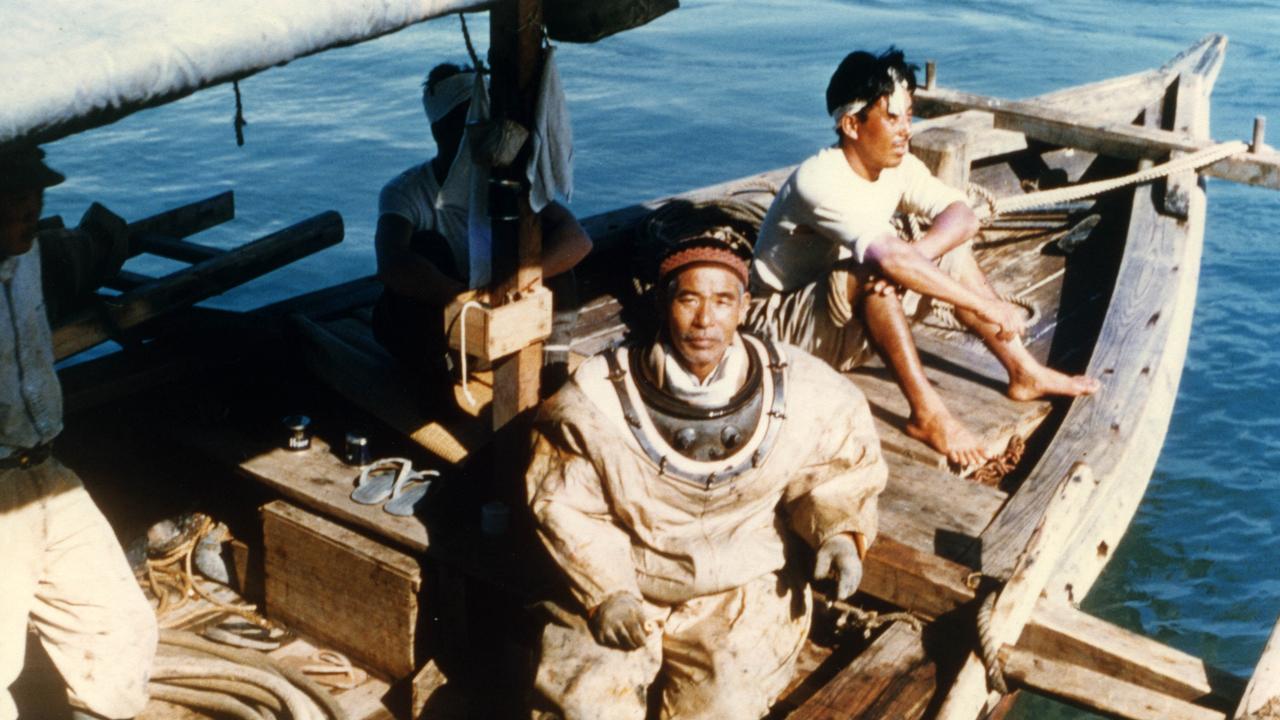
I think the views of people in Darwin changed when they saw how skilled and professional a lot of the Japanese salvage workers were. — Senichiro Fujita
But he was initially hesitant — he knew it would be very challenging and may not turn a profit for his company.
“When Ryuugo was commissioned to do the job, it was purely business,” Senichiro said. “At first he turned down the job. The reason for that was that salvage work in Darwin Harbour was very difficult and he just didn’t think he’d be able to turn a profit.
But administrators pleaded strongly with him to take on the job. “Ryuugo realised that his work was going to be very important to Darwin and he thought ‘I want to be useful’,” Senichiro said. “He thought over the economics of the salvage job and in the end accepted it.”
Ryuugo and his 120 staff lived on the British Motorist, the first ship to be raised from the ocean’s floor.
It was a far cry from his home in Japan where the scars of the war impacted on every aspect of life; a place where entire cities were completely destroyed by napalm and atomic bombs. With his one day off a week Ryuugo would often go to the movies and could be seen exercising the park or having a few drinks in town.
“It was a real shock for (the salvage crew) to come from Japan, which was still rebuilding from the war and where most people lived pretty much in poverty,” Senichiro said.
“In Darwin, there was a sense of yearning at the comparatively comfortable, almost fabulous lives people were enjoying at the time.
When Senichiro drank Cola for the first time, he thought, “How can it be that there is something so delicious?”
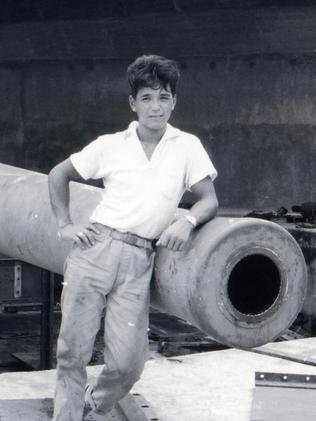
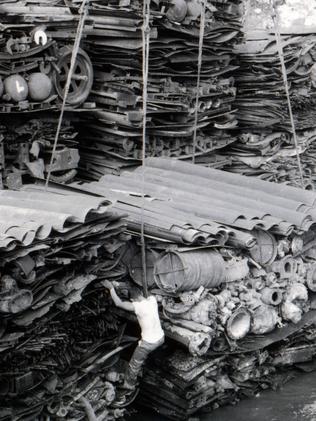
But it wasn’t long before Ryuugo became part of the community. He was soon accepted by locals and would often get invitations to parties or events from big names in the city including politicians and business men. He kept in touch with the families he grew close with even after returning to Japan.
“So while there was certainly some anti-Japanese sentiment, he didn’t experience racism or discrimination,” Senichiro said
“I think the views of people in Darwin changed when they saw how skilled and professional a lot of the Japanese salvage workers were.
“The Japanese workers forgot their worries once they realised the big-heartedness and generosity of people in Darwin.”
The relationship Ryuugo formed with the town is still evident today at the Darwin Uniting Memorial Church. At the same time as Ryuugo worked tirelessly in the Darwin Harbour, the foundation stone for the Darwin Memorial Uniting Church was laid in the heart of the city.
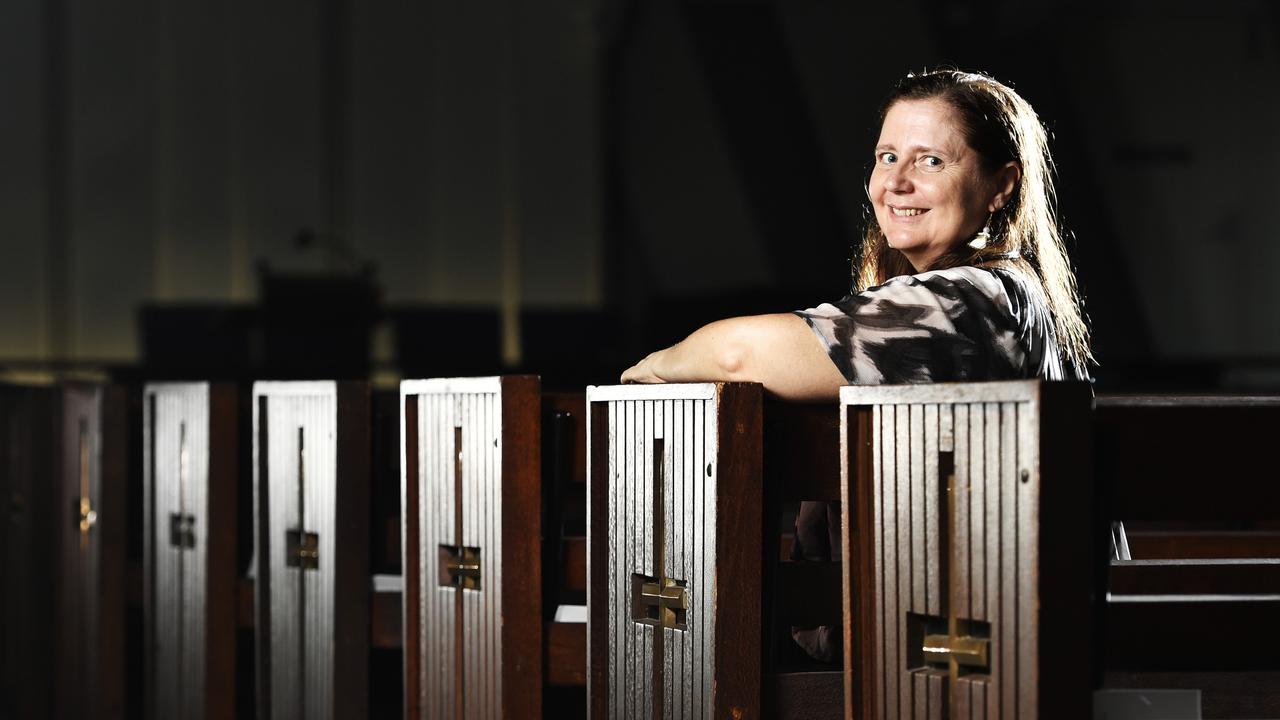
We want to share the story with the wider community and also offer them the fact there is possibility for reconciliation after conflict. — Lauren Merritt
Church community engagement facilitator Lauren Merritt said the church was built as a Memorial to the lives lost during the war, friend and foe alike.
Ryuugo crafted 77 bronze crosses from metal salvaged from the MV Zealandia wreckage and donated them to the church as a symbol of reconciliation.
He worked with the pastor to figure out an appropriate number to forge, settling on 77 due to the passage in the book of Matthew in the bible.
“At the opening of the church in 1960 Mr Fujita and his son and other members of the family were here with the ambassador, and he sat next to president of the RSL — it was quite a time of forgiveness and people in the crowd were inspired the idea that maybe reconciliation is possible after conflict,” Ms Merritt said.
“We want to share the story with the wider community and also offer them the fact there is possibility for reconciliation after conflict.”
Senichiro said despite his family being Buddhist, they deeply valued the relationship with the church. “The Church values the crosses Ryuugo gifted them, and tells people that it was a gift from him,” Senichiro said. “For me, that’s something that makes be very happy.”
“When I have visited Darwin, I’m struck with how much it has changed. But the church has stayed the same, in the same spot. The Memorial Church is a place where I get a sense of Ryuugo’s life and that I am following in his footsteps.”

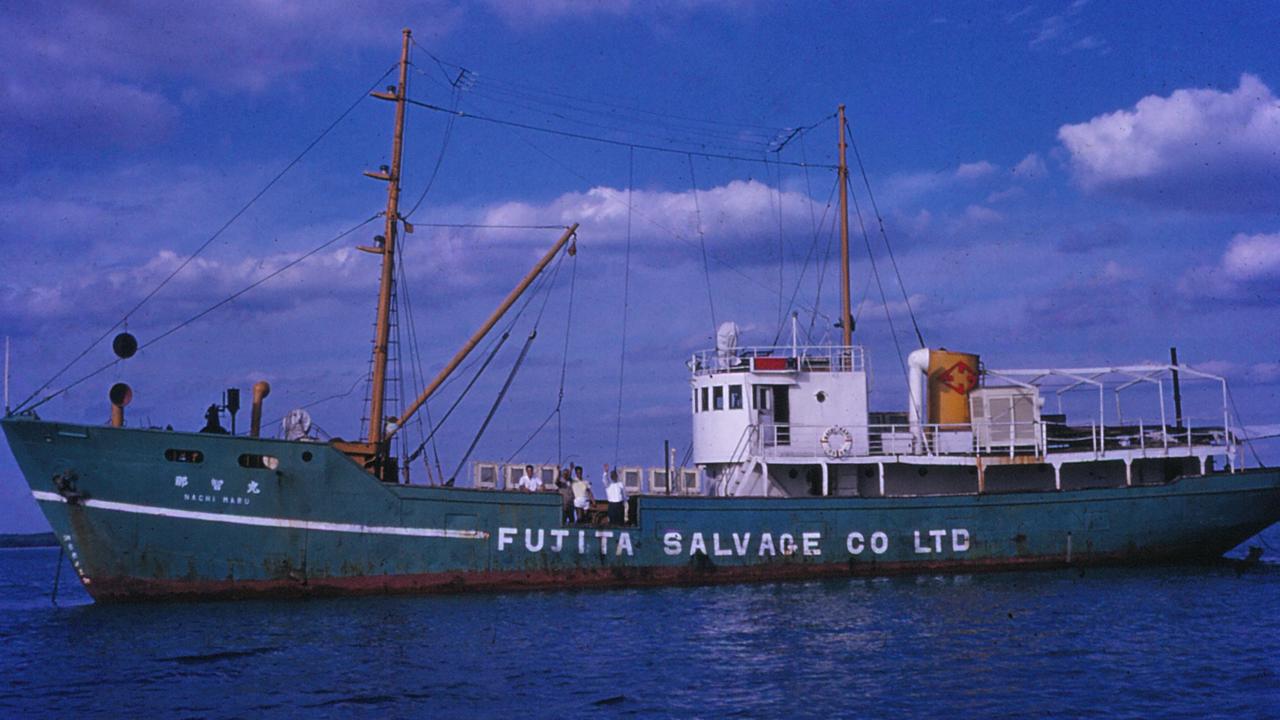
‘Astounding’ WWII site loses heritage listing amid Top End housing push
Just 24 hours after laying a wreath for Anzac Day commemorations, the NT Planning Minister publicly announced he would remove protections from historic WWII wreckage in an area slated for a 4000-home development.
‘Lest we forget’: Bombing of Darwin war hero dies aged 104
World War II veteran and Bombing of Darwin survivor Brian Winspear AM has died peacefully aged 104.